 Advance CTE joins the Virginia Department of Education in welcoming Dr. David Eshelman as the new State Career Technical Education (CTE) Director. David has 12 years of experience as a local school division CTE director and has spent the most recent four years at the state agency. He held the role of Director, Workforce Development through the development of the state’s Strengthening Career and Technical Education for the 21st Century Act (Perkins V) State Plan.
Advance CTE joins the Virginia Department of Education in welcoming Dr. David Eshelman as the new State Career Technical Education (CTE) Director. David has 12 years of experience as a local school division CTE director and has spent the most recent four years at the state agency. He held the role of Director, Workforce Development through the development of the state’s Strengthening Career and Technical Education for the 21st Century Act (Perkins V) State Plan.
Advance CTE staff met with David as he shared his pathway to becoming the State Director, as well as his initial priorities for CTE in the Commonwealth of Virginia.
Advance CTE: Which of your professional experiences has most prepared you for your role as the State Director?
David: Although I have held a previous role at the agency prior to becoming the State Director, it was the years spent as a CTE classroom educator and at the administrative level at local comprehensive high schools and career centers that fully equipped me to serve learners and their families now as the State Director. I come to this role with 32 years spent in education, but my state team, among others and myself, are most excited to see how we leverage my experiences spent alongside learners to grow CTE in Virginia.
Advance CTE: What excites you most about being the State Director in Virginia?
David: I am most excited about work underway in Virginia to expand access to work-based learning (WBL) opportunities. As State Director, I am mobilizing funding for a virtual WBL network that complements the Virginia Career Works project and will ensure each learner, no matter what their zip code is, has opportunities for this type of learning. That truly excites me.
Advance CTE: As you are settling into your new position, what initial priorities have you identified?
David: In our state and at the department we have identified a need to build leadership capacity and support our CTE educators who are at the local level and who may even have the aspiration of moving to the state agency or into a regional chair role. There’s nothing like working at the state department, and I want to prepare our next generation for leadership. My priorities in this effort are to offer our own WBL opportunities like summer externships at the agency, opening up opportunities for learning to all, and building a knowledge base by position.
Advance CTE: You have experienced leveraging social capital through your career progression, in what ways do you hope to create such opportunities for educators and learners in your state?
David: I do not want institutional knowledge to leave our agency when staff retire or transition to other positions. With my priorities of developing state CTE leaders, I hope to exercise social capital to ensure all new local CTE directors in the state have mentors or at least a professional network of peers to mobilize when they have a need or are looking for support.
While leading this work, however, I am also looking forward to nurturing my own social capital through the opportunities Advance CTE provides to new State Directors, such as the New State Director Institute.
Advance CTE: Fast forward and we are now celebrating your one-year anniversary as State Director. What is one challenge you’d like to have overcome by that milestone?
David: We are currently, as I imagine many are, going through changes in our state leadership. What I hope to have accomplished by next year is to increase internal office efficiency and workflow automation for the Office of Career, Technical, and Adult Education in Virginia. I also want to be sure we develop substantial methods of communication where all parties involved are receiving the information and data needed to make informed decisions that serve our learner populations, particularly focusing on the rural areas in the state and the learner gaps in our programs there.
Advance CTE: If you could only eat one food for the rest of your life, what would it be?
David: This is a tough question, but I will have to keep it close to home and go with Virginia Ham!
Welcome, David! Advance CTE is thrilled to support David as he strives to ensure each learner in Virginia has access to and the means to succeed in any high-quality CTE program or experience that leads to success in their career of choice.
Click here to learn more about the state CTE system in Virginia.
View resources that feature best practices in Virginia here.
Follow David on Twitter and LinkedIn
Brittany Cannady, Senior Associate for Digital Media


 These organizations are a powerful model for learner-centered and learner-led education, and Advance CTE is pleased to be joined by seven national CTSOs in supporting the national vision for CTE.
These organizations are a powerful model for learner-centered and learner-led education, and Advance CTE is pleased to be joined by seven national CTSOs in supporting the national vision for CTE. 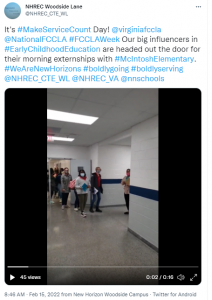 FCCLA members at New Horizons Regional Education Center: Woodside Lane in Newport News,
FCCLA members at New Horizons Regional Education Center: Woodside Lane in Newport News,  Griffin Middle School in
Griffin Middle School in 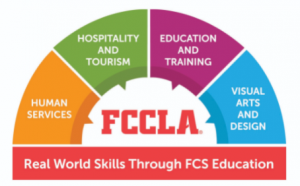 FCCLA strives for FCCLA members to have clear paths for their skills to be valued and counted. FCCLA has identified four career pathways that align to key technical and “employability” skills gained through FCCLA experiences, listed below. Members also have the opportunities to test and display skill competencies at
FCCLA strives for FCCLA members to have clear paths for their skills to be valued and counted. FCCLA has identified four career pathways that align to key technical and “employability” skills gained through FCCLA experiences, listed below. Members also have the opportunities to test and display skill competencies at 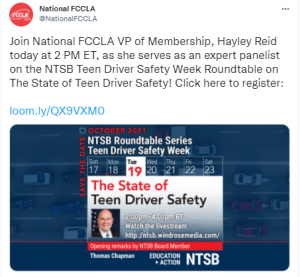 FCCLA members have the opportunity to share their skills and make connections beyond the classroom and even their state. National FCCLA leader Hayley Reid participated in a federal policy panel held by the National Transportation Safety Board.
FCCLA members have the opportunity to share their skills and make connections beyond the classroom and even their state. National FCCLA leader Hayley Reid participated in a federal policy panel held by the National Transportation Safety Board. 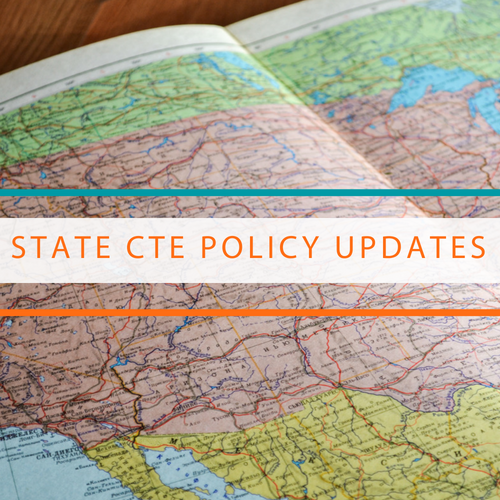 State education agencies, legislators and educators faced significant challenges from
State education agencies, legislators and educators faced significant challenges from  Short-term Debt Limit Deal Enacted
Short-term Debt Limit Deal Enacted 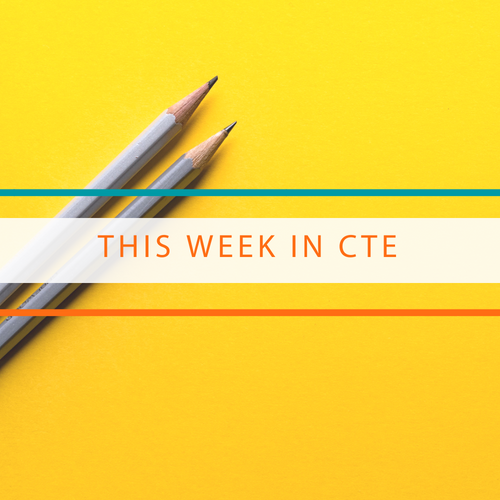 Developed with input from nearly 200 national, state and local education and workforce development leaders and supported by over 40 national organizations,
Developed with input from nearly 200 national, state and local education and workforce development leaders and supported by over 40 national organizations,  Many states are in the process of planning for learners to physically reenter school and college in the fall. However, the possibility of a
Many states are in the process of planning for learners to physically reenter school and college in the fall. However, the possibility of a  Industry-recognized credentials are an essential component of any high-quality Career Technical Education (CTE) program. They indicate the entry-level competencies learners need in a given career field and signal to employers that an individual is prepared for work. But in the midst of a global pandemic, with nearly every state issuing, to varying degrees, stay at home orders that have resulted in school closures and limited access to testing facilities, how can learners continue to earn industry-recognized credentials?
Industry-recognized credentials are an essential component of any high-quality Career Technical Education (CTE) program. They indicate the entry-level competencies learners need in a given career field and signal to employers that an individual is prepared for work. But in the midst of a global pandemic, with nearly every state issuing, to varying degrees, stay at home orders that have resulted in school closures and limited access to testing facilities, how can learners continue to earn industry-recognized credentials? 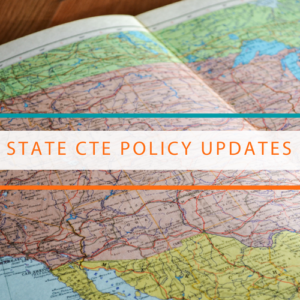 As the legislative sessions move forward, states have passed laws to examine and increase work-based learning opportunities for learners.
As the legislative sessions move forward, states have passed laws to examine and increase work-based learning opportunities for learners.